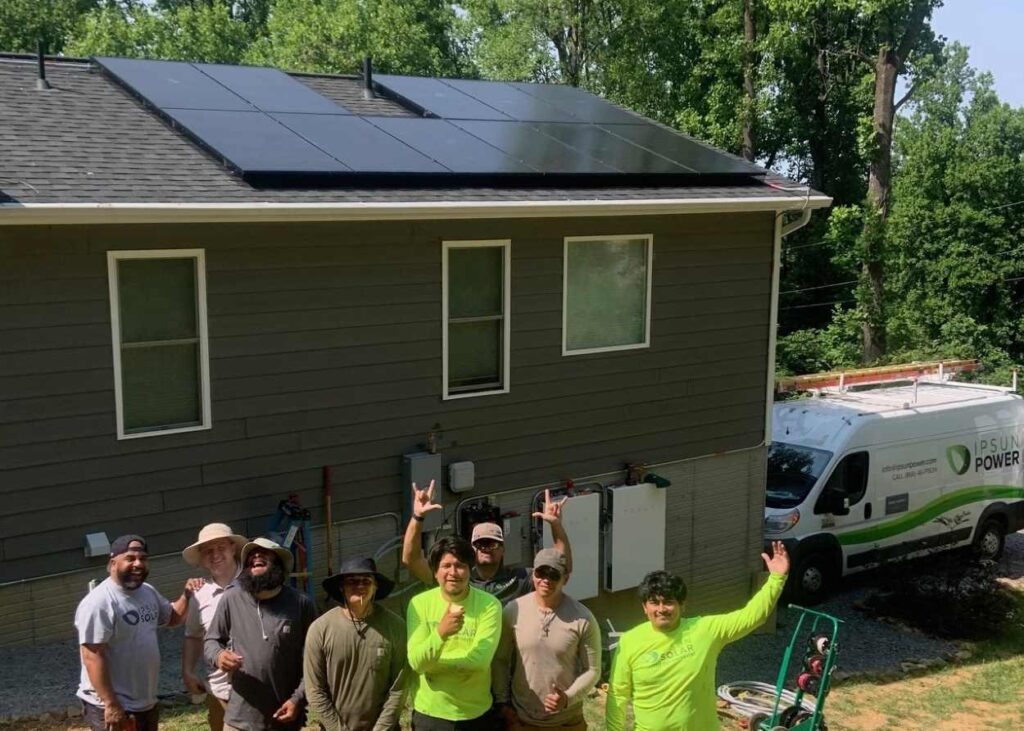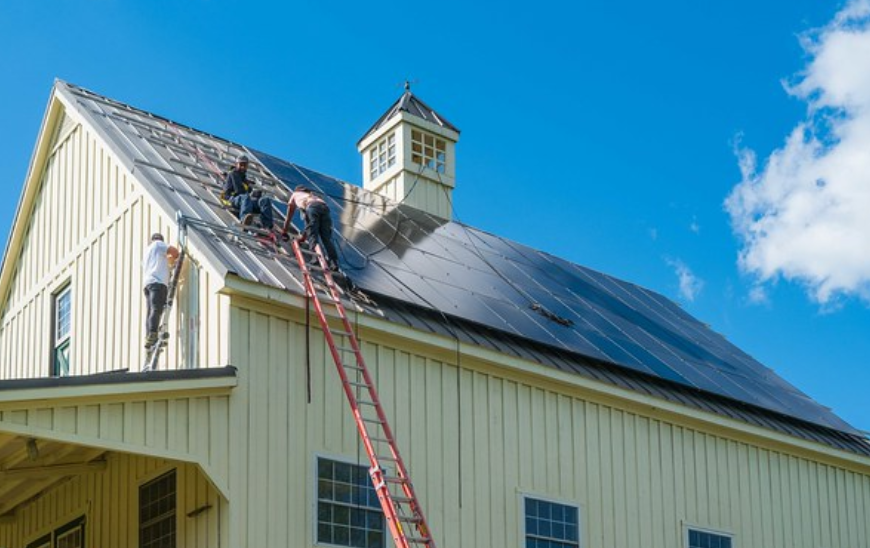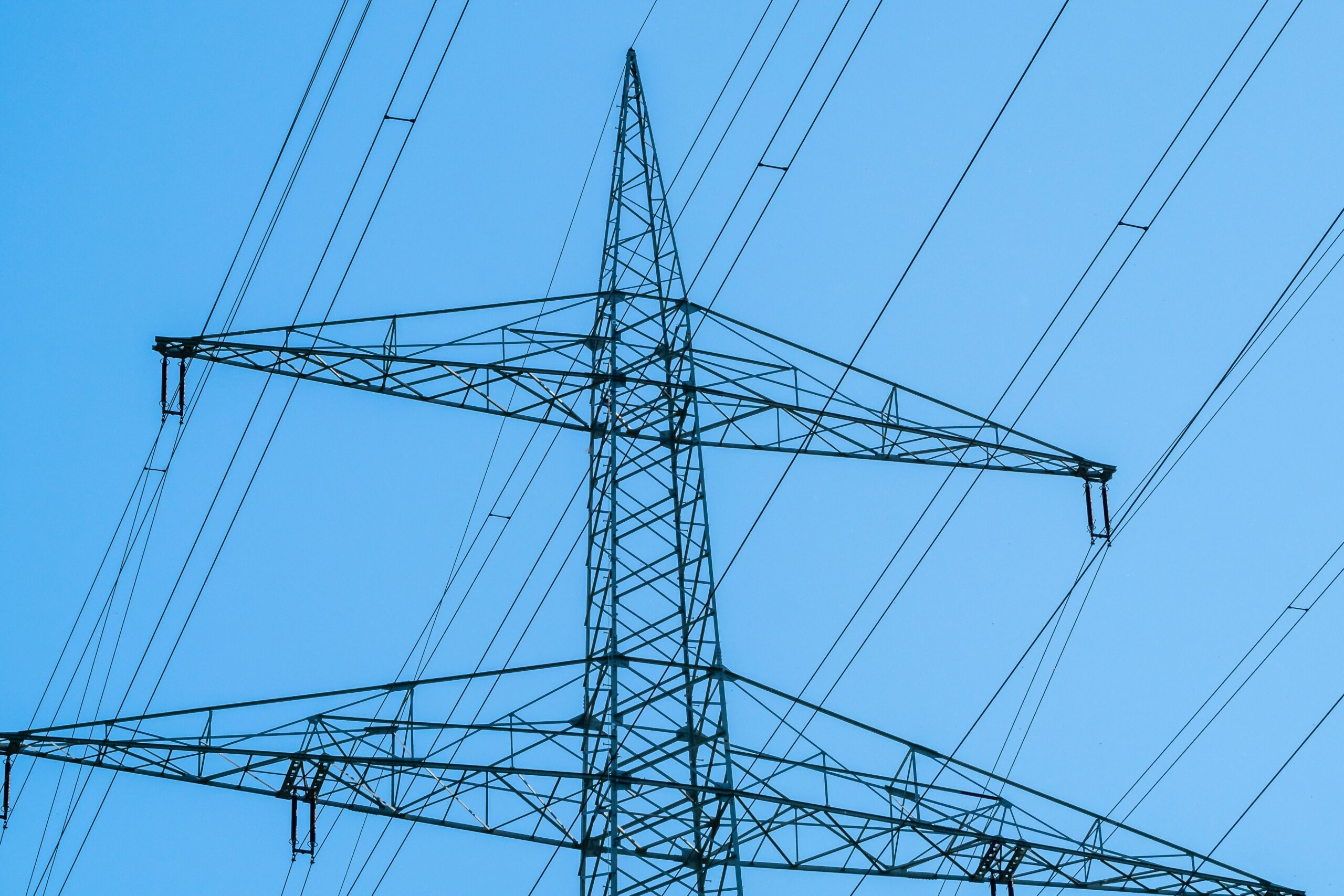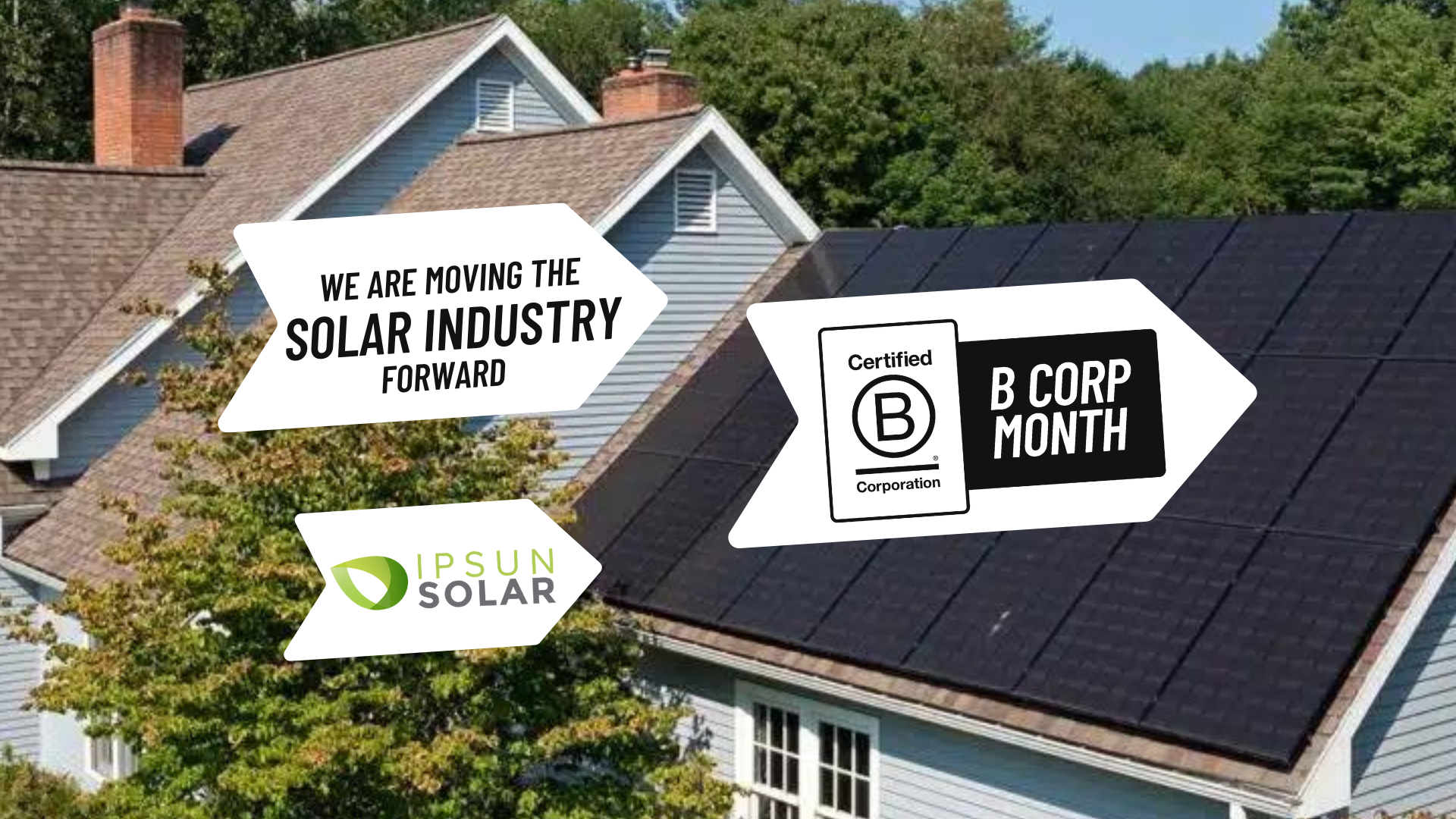We’re thrilled to see that residential solar installations grew by 30% in the first quarter of 2023 compared to the same period in 2022, according to the Solar Energy Industries Association. This surge in solar interest has made our phones ring with loads of questions, which we love! Helping people understand solar and feel comfortable with the technology is one of the favorite parts of our job.
One we’re hearing a lot lately is about the potential health risks of solar panels, which is understandable since it is a technology that may be new to many folks. Everyone wants to make sure their family is safe with this technology on their roof, of course! Well, good news — we’re here to tell you that solar panels are super safe and they improve human health outcomes overall. Here’s why.
Electromagnetic Radiation from Solar Panels
One of the primary concerns people bring us is about the electromagnetic radiation emitted by solar panels. If you’re unfamiliar with the term, electromagnetic radiation is a kind of radiation in which electric and magnetic fields (EMF) travel in waves from both natural and man-made sources. Some examples of electromagnetic radiation include radio waves, microwaves, and visible light. For the purpose of this discussion, radio waves are the main type of EMF we’re looking at.
An extremely small and weak electromagnetic field is created whenever electricity is produced by solar panels and transmitted to the power grid. While this may sound ominous, the World Health Organization reports that exposure to low-level electromagnetic fields has been studied extensively, with no evidence of any conclusive harm to human health.
A good way to think of it is by comparing these waves to EMFs emitted by cell phones. All cell phones emit EMFs, at low levels of non-ionizing radiation. If you’re comfortable carrying your phone in your pocket, then you will probably be comfortable with solar panels on your roof.
Another question we hear is about the EMFs coming from the solar inverter, or smart meter and the power lines attached to your home. Similar to the EMFs produced in the panels themselves, these other items are also deemed safe by the WHO and are subject to regulation by the FCC.
Cancer Risks and Solar Energy
Especially for those who see a field of solar panels being installed near their home, the concern about cancer from solar panels is understandable. It makes sense that you might wonder about your family’s health with a large installation nearby. But rest assured, more solar absolutely means healthier air, cleaner living, and a brighter future for everyone, not the opposite.
For decades, large-scale public health studies have been performed to conclude that there are no associations between solar energy and cancer. True for rooftop installations and large solar farms, global public health researchers have found in every study that solar panels do not cause cancer at any production level.
In fact, solar energy adoption directly reduces health risks associated with traditional forms of energy production, such as pollution from toxic chemicals like sulfur dioxide, nitrogen oxides, particulate matter, carbon dioxide, mercury, and other hazardous air pollutants. These pollutants are proven to cause asthma, cancer, and other respiratory diseases.
And this is not even taking into account the long-term, overall health risks to society brought about by climate change, which are truly terrifying. The long-term health risks associated with burning fossil fuels include respiratory and heart diseases, pest-related diseases like Lyme disease and West Nile Virus, water- and food-related illnesses and scarcity, and injuries and deaths due to superstorms and wildfires. According to the US Department of Energy, climate change has also been linked to increases in violent crime and overall poor mental health.
Carbon Debt of Solar Panels vs Fossil Fuels
With a warranty period of 25 years and an expected lifespan of 30+ years, the environmental payback for a single solar energy system is surprisingly quick. Even when considering transport, manufacturing, and installation, residential solar systems can offset their environmental impact and become carbon neutral in the first few years, with a net gain of nearly 50 pounds of carbon sequestered yearly.
Fossil-fueled energy sources obviously do the opposite, with an average of 14,020 pounds of carbon emitted per US household annually. The negative impact of burning fossil fuels also compounds year after year, as we reach dangerous tipping points for ocean warming and wildfire mitigation.
Additional health benefits from solar, both at home and on a global scale
Residential solar systems play a crucial role in creating a decentralized power generation infrastructure. Among the many benefits, distributed power generation through individual solar owners means fossil fuel companies will not have to build more infrastructure for peak demand times. Power can instead come from a nearby network of solar owners, thus reducing heavy pollution in underserved communities where fossil fuel infrastructure, like peaker plants, are typically built.

Closer to home, your own energy resilience with solar and battery storage can lead to better health outcomes for your family. During blackouts and grid outages caused by extreme weather events, solar energy enables you to maintain your electricity supply. This ensures the functioning of life-sustaining medical devices as well as the ability to maintain heating and cooling, water pumps, and other important appliances for human health.
The widespread adoption of solar energy in commercial and industrial settings and on a utility scale also offers immense benefits for human health. By replacing fossil fuel production with large-scale clean solar energy, we can significantly and quickly reduce the emission of airborne pollutants that pose serious health and climate risks. Decreasing the prevalence of respiratory infections, mitigating the risk of lung cancer, and improving overall air quality are among the many advantages of transitioning to solar power.
By embracing solar energy, we can build a healthier and more sustainable future for ourselves and future generations.

Talk to us!
Please reach out to us with your thoughts and concerns. It’s so important to talk about these issues and for us all to keep learning. And it is crucial to rely on scientific research and expert opinions to separate fact from fiction. At Ipsun Solar, we are dedicated to providing reliable information and helping our customers make informed decisions about solar energy adoption. Reach out for a chat today at 703-249-6594 or click below!





